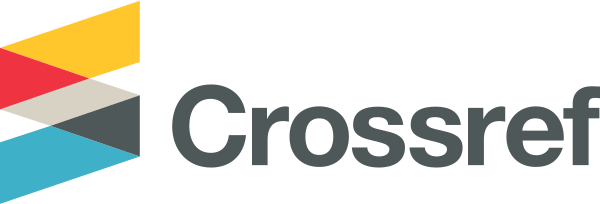
Publication ethics
Publication ethics and publication malpractice statement
Ethical standards of scientific journals are crucial to ensure high quality of publications and the credibility of scientific findings. Our publication ethics and malpractice statement is based on the core practices and guidelines of the Committee On Publication Ethics (COPE). All parties involved in the publication process (editors, reviewers, authors, and the publisher) must follow their ethical duties and responsibilities defined by JLAR.
Duties and responsibilities of
➟ Editors
➟ Reviewers
➟ Authors
➟ The publisher
Editors | duties and responsibilities
Publication decisions
- Editors are responsible for the content and overall quality of publications.
- Editors decide which submitted manuscripts are forwarded to the reviewing process and published thereafter, following the journal’s review guidelines.
Fair play
- Editors should evaluate manuscripts exclusively on their academic merit (importance, originality, clarity, study’s validity) and its relevance for the journals scope.
- Editor decisions must be unbiased by authors’ gender, race, sexual orientation, ethnic origin, religious belief, citizenship, political philosophy and institutional affiliation.
Confidentiality
- Editors and the editorial staff must not disclose any information about a submitted manuscript to anyone other than the corresponding author, reviewers, potential reviewers, other editorial advisers and the publisher as appropriate.
Disclosure and conflict interests
- Editors must not use unpublished information for their own research without the authors’ explicit written consent.
- Editors should not suggest additional literature to the authors.
- Editors should have a clear picture of the research’s funding sources and resulting conflicts of interest.
- Editors should recuse themselves from considering a manuscript (i.e. should ask a co-editor) in case of conflicts of interest resulting from competitive, collaborative, of other relationships with any author, company or institution connected to a paper.
- Editors (in conjunction with the publisher) must take reasonably responsive measures when ethical concerns are raised with regard to a submitted or already published paper. Measures can range from an authors' statement to publication of a formal notice or even a retraction or withdrawal of a paper.
Reviewers | duties and responsibilities
Contribution to editorial decisions
- Reviewers assist the editor in making editorial decisions and through the editorial communications with the author(s) may also assist the author(s) in improving the paper.
- Any invited reviewer who feels unqualified to review the research reported in a manuscript should notify the editor and decline the review invitation.
Confidentiality
- Reviewers must treat any manuscripts received for review as confident documents. They must not be shown to or discussed with others unless authorized by the editor. This also applies to invited reviewers who decline the review invitation.
- JLAR follows the principle of double-blind review, and so reviewers are asked to avoid identifying themselves in reviews, including in the metadata of submissions (e.g., the “author” field in a Microsoft Word document’s properties).
Standards of objectivity
- Reviews should be conducted objectively.
- Reviewers should express their views clearly with appropriate supporting arguments.
- Personal criticism of the author(s) is inappropriate.
Acknowledgements of sources
- Reviewers should identify relevant published work that has not been cited by the authors.
- Reviewers should accompany any statement that an observation or argument has been previously reported by the relevant citation.
- Reviewers should inform the editor about any substantial similarity between the manuscript under consideration and any other publication.
Disclosure and conflict of interest
- Reviewers should decline any review invitation of manuscripts in which they have conflicts of interest resulting from competitive, collaborative, or other relationships or connections with any of the authors, companies or institutions connected to the manuscript.
- Reviewers should not suggest unbalanced additional literature of their own to the authors.
- Reviewers must not use unpublished material disclosed in a submitted manuscript in their own research without the express written consent of the author(s). Privileged information or ideas obtained through peer review must be kept confidential and not used for the reviewer’s personal advantage. This applies also to invited reviewers who decline the review invitation.
Authors | duties and responsibilities
Reporting standards
- Authors of original research should present an accurate account of the work performed and the results, followed by an objective discussion of its significance and relevance.
- Author should provide sufficient detail and references in their manuscript to permit others to replicate the work.
- Fraudulent or knowingly inaccurate statements constitute unethical behavior and are unacceptable.
- If authors use AI/LLM tools for procedures such as data collection or corpus construction, they should be cited as other software would be.
Data access and retention
- Authors should present all data accurately within the manuscript.
- Authors should make an ethics statement. Concerning ethical issues raised by the inclusion of human subjects, we encourage you to apply current initiatives of establishing and unifying ethical standards.
- As far as possible, authors should make the underlying raw data of their manuscript publically available for a reasonable time after publication, ideally in a public data repository providing a citable DOI.
- Authors should write a data availability statement within their submitted manuscript.
Originality and plagiarism
- The authors must ensure that their manuscript entirely contains original work. The work and/or words of others have to be appropriately cited or quoted.
- Plagiarism in all its forms (e.g. copying substantial parts of others' work or claiming results from others' research) constitutes unethical publishing behavior and is unacceptable.
Acknowledgement of sources
- Authors must always give proper acknowledgment of the work of others.
- Authors should also cite publications that have been highly influential in determining the nature of the reported work.
- Authors should avoid unbalanced self-citations.
Multiple, duplicate, redundant or concurrent publication
- Authors should not publish essentially the same research in more than one journal or primary publication.
- Authors must not submit the same manuscript to more than one journal at a time. This is unethical publishing behavior and unacceptable.
- Authors are holding the copyright of their work after publication (CC-BY 4.0). Thus, they can freely republish their text. The primary reference needs to be cited in a secondary publication.
Authorship of a manuscript
- Authorship is strictly limited to those who have significantly contributed to the concept, design, execution, or interpretation of the reported study. All those meeting these criteria should be listed as co-authors.
- Authors should name others who have substantially supported the research but do not meet the criteria for authorship within the Acknowledgements section of their manuscript.
- The corresponding author should ensure that all appropriate co-authors (according to the above definition) and no inappropriate co-authors are included in the manuscript author list.
- The corresponding author should verify that all co-authors have seen and approved the final version of the manuscript and agreed to its submission to the journal as well as final publication.
- A paper entirely or in part written by AI/LLM tools does not meet the journal's requirements for authorship.
Disclosure and conflict of interest
- Authors should disclose all sources of financial support (including the grant number or other reference number if any) in a “financing statement” within their submitted manuscript.
- Authors must disclose any conflicts of interest that might be construed to influence the results or their interpretation in the manuscript in a “conflicts of interest statement” within their submitted manuscript.
Fundamental errors in published works
- Authors who discover significant errors or inaccuracy in their own published work, have the obligation to promptly notify the journal’s editors or publisher. They have either to correct the paper in the form of an erratum or to retract the paper.
- When a third party reports to the editors or publisher that a published work contains a significant error or inaccuracy, it is the authors’ obligation to correct or retract the paper or to provide evidence of its correctness.
Research participants
- Authors must guarantee the privacy rights of any participants in their published research.
Publisher | duties and responsibilities
Handling of unethical publishing behavior
- The journal publisher, in close collaboration with the editors, will take all necessary measures in cases of alleged or proven scientific misconduct, fraudulent publication or plagiarism. This primarily includes clarification, followed by publication of an erratum or the retraction of an affected article.
- The publisher, as well as the editors, should take reasonable steps to identify and prevent publication of articles where misconduct has occurred.
Access to journal content
- The journal publisher ensures preservation of access to the published journal content by archiving all files and metadata on the archive servers of the German National Library as well as within the PKP Preservation Network.







